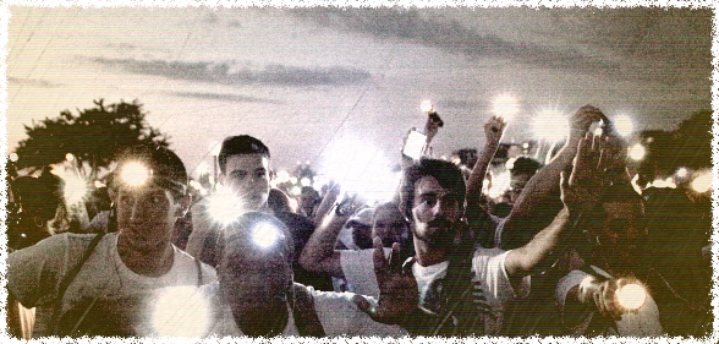Experiments in Participation
Experiments in Participation

This strand of research in CIM is interested in experiments as an interface between science, technology and social and cultural life. Experiments offer important instruments in our society for negotiating the relations between diverse constituencies, and as such we are interested in experiments as both objects and resources for interdisciplinary research.
We investigate experiments as an increasingly ubiquitous format and occasion for promoting, testing, criticizing and valuing science and technology, in the form of living labs, sensing experiments and a wider demo culture. But we are also interested to test the capacities of experimentation as an interdisciplinary methodology, especially insofar as it opens up a space between representation and intervention, between ‘what is’ and ‘what might be.’ How does this speculative capacity of experiments enable knowledge, innovation and change?
We ask whether the conditions and quality of experimentation are changing in digital societies, as the expansion of experimental infrastructures across social life seem to render the distinction between the laboratory and its outsides – between in vivo and in vitro - increasingly fluid. What opportunities does this open up for inter-disciplinary engagement with experimental situations across social, cultural and public life? And what are the implications for long-standing tensions between experimentation and democracy?
- Experimental moments and devices. We study specific occasions for “experiments in participation,” including controversies, data leaks, hacks, natural disasters. Our research seeks to determine the specific capacity of such events and devices to enable interrogation of existing arrangements, and at the same time, compel engagement between actors and constituencies. (Dr Noortje Marres).
- Experiment as inventive method. There is a long tradition of deploying experimental methods to occasion participation. These methods have gained fresh relevance in the context of citizen science, crowd sourcing, volunteered data, social innovation and so on. But how do experimental methods help to facilitate engagement and wider situations of publicity that are productive for knowledge and change? What are the risks and dangers associated with the use of such methods, and how can they be productively deployed here? (Dr Noortje Marres; Professor Celia Lury)
- Experimental publics. The relation between democracy and experimentation is a multi-faceted, as experiments are both associated with the progressive ideal of collective inquiry as with repressive practices of manipulation. What is the relation between these? Does experimentation offer a distinctive register of engagement, above and beyond deliberation? Can we say that experimentation expands the registers of participation, as it can be performed in everyday, workplace and environmental settings? Do experiments enable more even-handed forms of engagement between different forms of knowledge, and between scientific, artistic and social traditions in experimentation (Dr Noortje Marres).
